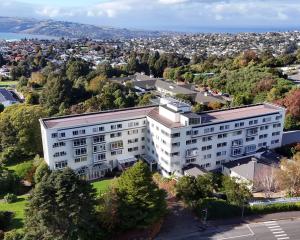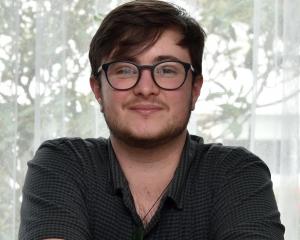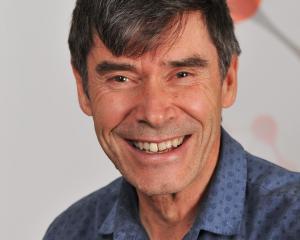
She spoke to health reporter Mike Houlahan about her new job and how it is about more than improving statistics.
Statistics have long told a sorry tale of Maori having poorer health outcomes than non Maori, but improving the lot of her people has to be about more than facts and figures, Mata Cherrington says.
The Invercargill-born and bred health executive is the newly appointed interim regional director Te Waipounamu for Te Aka Whai Ora the Maori Health Authority, and for her the challenge of achieving better outcomes is personal.
"I don’t see deficits, I see people who have ultimately not [been] able to be all they could be," she said.
"They are not just numbers, they have lives."
Ms Cherrington, the former chief executive of Awarua Whanau Services, was briefly the chief Maori health strategy and improvement officer for the Southern District Health Board, before the health reforms did away with District Health Boards.
Shortly before Ms Cherrington started at the board, her predecessor, Gilbert Taurua, produced a sobering report on Maori mortality, which found that a southern person of European descent would live about four years longer than a Maori, and that someone of Asian descent could expect to live longer than either of them.
Maori are also more likely to develop contagious diseases, develop life-threatening conditions sooner, and are less likely to have access to health services than other people.
"There is never a right way for reform, but the health system needs to evolve with the population and the population’s health needs, and utilise new technologies; but that is not what we are seeing," Ms Cherrington said.
"What we are trying to achieve is better health outcomes for everybody; the amount of money it costs to have somebody in a hospital bed as opposed to investing in the front-end and preventive medicine. Taking that approach would place our national economy in a better situation and will allow our communities to achieve the things that they want to achieve."
The new roles that Ms Cherrington and her three fellow interim directors will fulfil over the next six months require them to liaise with hospital and specialist services, as well as primary and community care and public health officials, to assess what health provisions and initiatives for Maori are already in place, and to strengthen local relationships and capacity before the new system fully rolls out.
Key features of the reforms, such as the localities which will provide information about local health priorities and needs to regional and national planners, are yet to be implemented.
However, Ms Cherrington believed the prototype localities already in operation showed the idea had huge potential.
"I think localities will be a great way to ensure that community voices are heard and that they will have the ability to contribute to the design of our health system.
"We have to improve access, we have to look to our technology so that in places and at times where we are physically isolated or have limited access, that we can ensure access of some sort to meet people’s health needs," she said.
None of this would be easy, Ms Cherrington stressed.
She fully expected that fixing the systemic issues which adversely affected Maori health and wellbeing would be the work of decades, not months or years.
"In six months, even if I work 24/7, we’re not going to land at the final model — but we will have explored how we shift from districts to regions, what is an intelligent way forward, and how do we ensure that we bring everyone with us and stand up a new health system that will be meaningful for our communities," she said.
"We are not going to see the fruits of our labours now. It is going to be two or three generations before we see a real shift in all of Aotearoa’s health outcomes."
Another major hurdle the reforms had to clear was the perception of some that Te Aka Whai Ora was a separate system, when it was instead intended to be supplementary and complementary to the work of Te Whatu Ora — Health New Zealand, she said.
"If you choose to get care from a kaupapa Maori provider or a hauora Maori provider, you will not be turned away — that would be against our values and principals.
"We want to ensure that we support our colleagues to deliver better health outcomes for all communities and all population groups, regardless of ethnicity ... unity and diversity actually benefits the whole of Aotearoa."












